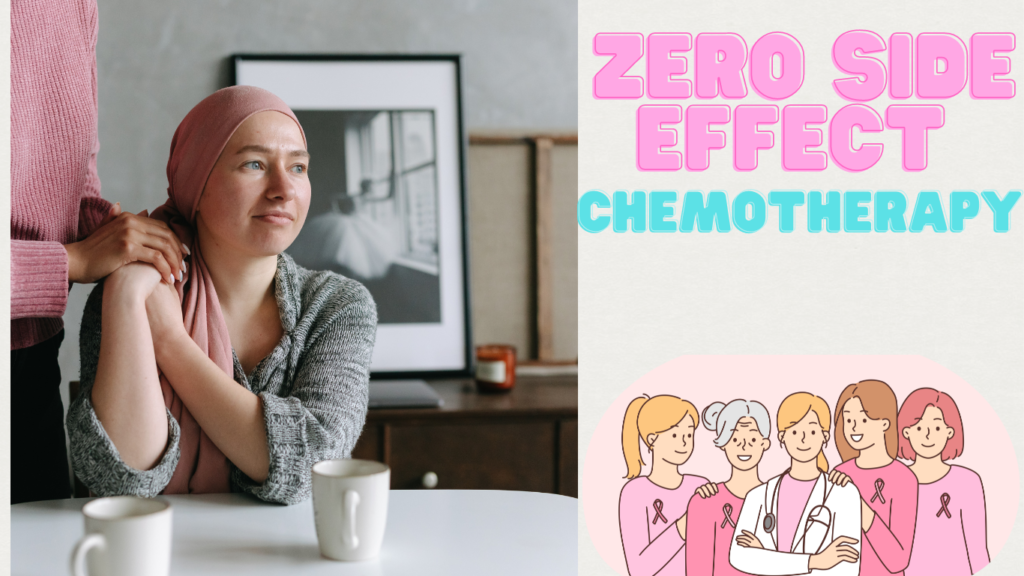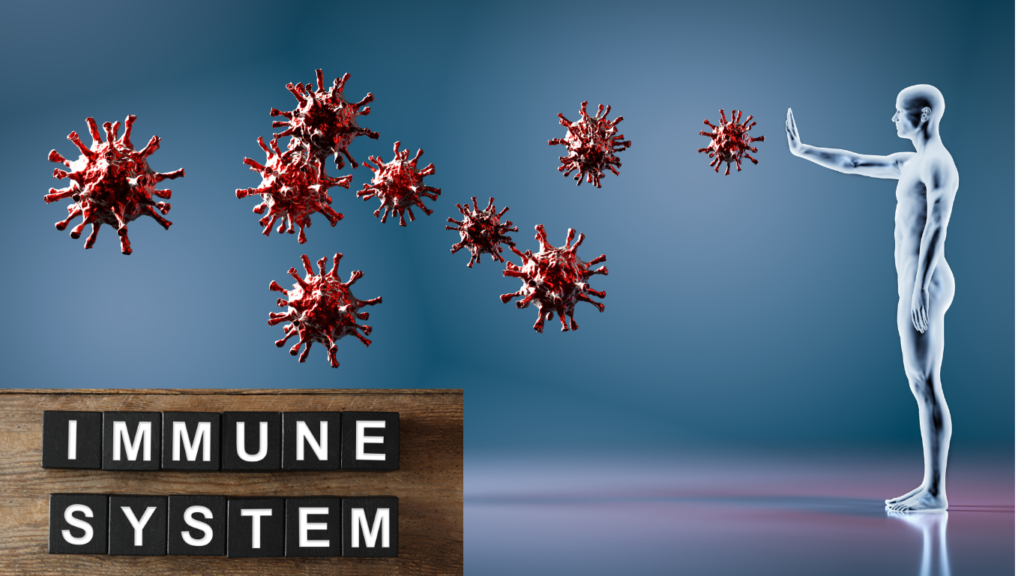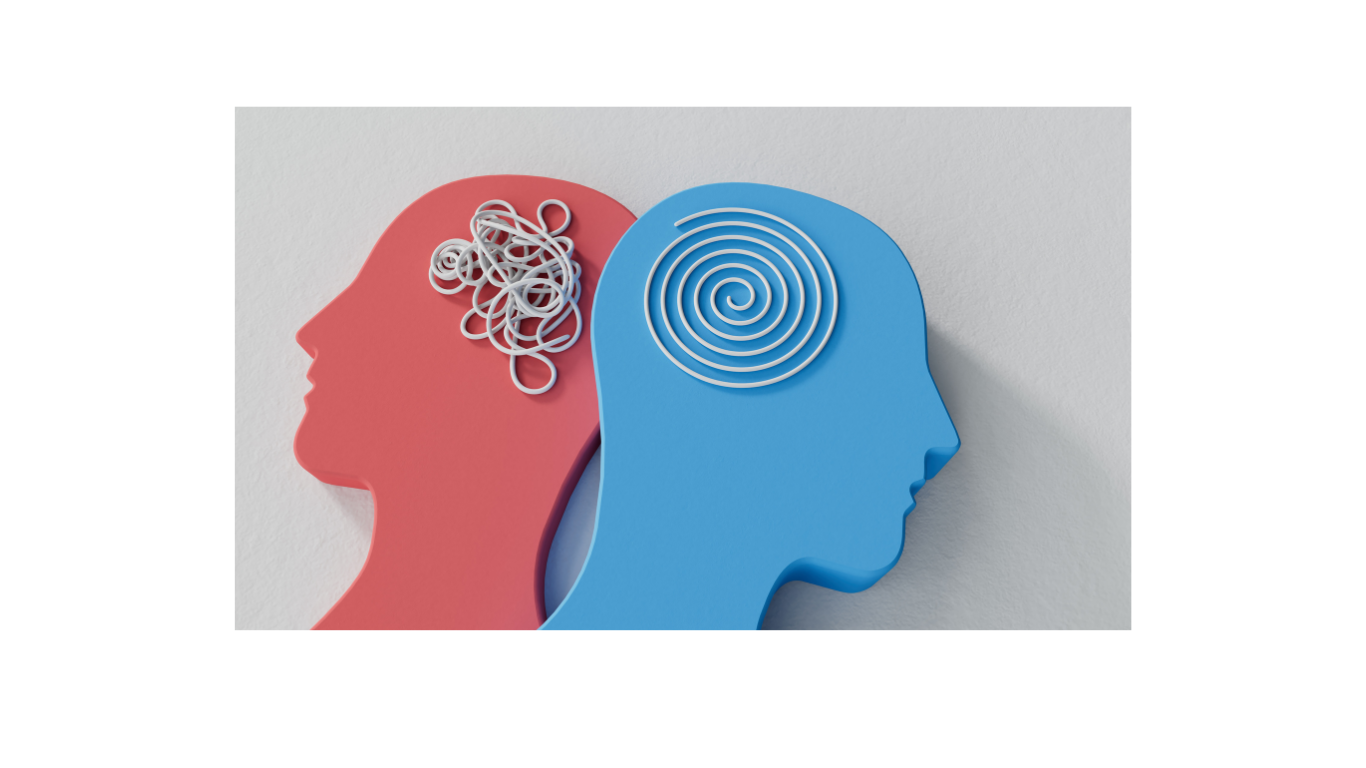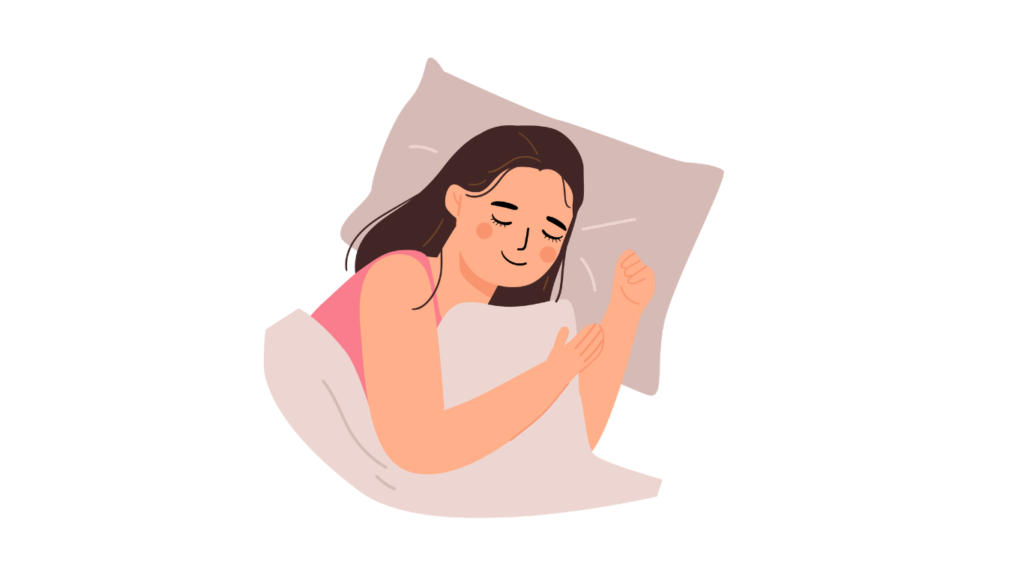
Zero Side Effect Chemotherapy [जीरो साइड इफ़ेक्ट कीमोथेरेपी ]
Zero side effect of Chemotherapy has long been a cornerstone in cancer treatment, offering hope and healing to millions of patients worldwide. However, alongside its undeniable benefits, conventional chemotherapy often brings with it a host of side effects that can be debilitating and distressing for patients. From nausea and hair loss to fatigue and weakened immune systems, the toll on both physical and emotional well-being can be significant.
Holistic Approach in Zero Side Effect Chemotherapy
Central to the philosophy of zero side effect chemotherapy is the integration of conventional medical treatments with complementary therapies such as acupuncture, massage, meditation, and nutritional counseling. By taking a holistic approach to care, healthcare providers can address not only the physical symptoms of cancer but also the emotional and spiritual needs of patients, helping them to heal on multiple levels.
Benefits of Zero Side Effect Chemotherapy
One of the primary benefits of zero side effect chemotherapy is the reduction or elimination of the debilitating side effects commonly associated with traditional chemotherapy. By minimizing toxicity and supporting the body’s natural defenses, patients can experience fewer treatment-related symptoms and a better quality of life overall.
Research and Innovation in Zero Side Effect Chemotherapy
Ongoing research and innovation are driving advancements in zero side effect chemotherapy, paving the way for new and improved treatment options. From targeted therapies to immunotherapy and beyond, the future holds promise for even more effective and personalized approaches to cancer care.
Importance of Diet in Zero side effects of chemotherapy
Diet plays a crucial role in helping patients alleviate the Zero side effects of chemotherapy.Ongoing research and innovation are driving advancements in zero side effect chemotherapy, paving the way for new and improved treatment options. From targeted therapies to immunotherapy and beyond, the future holds promise for even more effective and personalised approaches to cancer care. Here’s how:
- 1 . Nutritional Support: Chemotherapy can often lead to nausea, vomiting, and loss of appetite, making it challenging for patients to maintain proper nutrition. A well-balanced diet rich in fruits, vegetables, lean proteins, and whole grains can provide essential nutrients to support the body’s immune system and promote healing.

- 2 .Hydration: Chemotherapy can cause dehydration, especially if patients experience vomiting or diarrhoea. It’s vital for patients to stay hydrated by drinking plenty of fluids such as water, herbal teas, and electrolyte-rich beverages to replenish lost fluids and prevent dehydration.
- 3 .Combatting Nausea: Certain foods and beverages, such as ginger, peppermint, and herbal teas, can help alleviate nausea and settle the stomach. Patients may find it helpful to consume small, frequent meals throughout the day and avoid spicy, greasy, or heavy foods that may exacerbate nausea.
- 4. Boosting Immunity: Chemotherapy can weaken the immune system, making patients more susceptible to infections. A diet rich in immune-boosting nutrients such as vitamin C, vitamin D, zinc, and antioxidants can help strengthen the body’s defenses and reduce the risk of infection.

- 5 .Maintaining Weight: Some patients may experience weight loss during chemotherapy due to loss of appetite or digestive issues. Consuming calorie-dense foods such as nuts, seeds, avocados, and healthy fats can help patients maintain a healthy weight and prevent muscle wasting.
- 6 .Supporting Digestive Health: Chemotherapy can disrupt the digestive system, leading to issues such as constipation or diarrhoea. Including fibre-rich foods such as fruits, vegetables, whole grains, and legumes can help regulate bowel movements and support digestive health.
- 7 .Managing Fatigue: Chemotherapy-related fatigue is common among cancer patients. Eating small, nutrient-dense meals and snacks throughout the day can help sustain energy levels and combat fatigue. It’s also essential for patients to prioritise rest and engage in gentle exercise as tolerated to manage fatigue effectively.
- 8 .Consultation with Healthcare Providers: Patients should consult with their healthcare providers or registered dietitians to develop personalised nutrition plans tailored to their specific needs and treatment goals. Healthcare professionals can offer guidance on dietary modifications, supplements, and hydration strategies to help patients mitigate the side effects of chemotherapy and optimise their overall well-being.
- To enrolled in cancer rehabilitation click here
By incorporating these dietary strategies into their treatment plan, patients undergoing chemotherapy can support their bodies’ resilience, enhance treatment tolerance, and improve their quality of life during cancer treatment.
Importance Breathing exercise Zero Side effects of chemotherapy
Breathing exercises can provide significant relief from the zero side effects of chemotherapy by promoting relaxation, reducing stress, and enhancing overall well-being. Here’s how:
- 1 .Stress Reduction: Chemotherapy treatment with zero side effect can often cause heightened levels of stress and anxiety in patients due to the uncertainty and discomfort associated with the process. Engaging in deep breathing exercises can activate the body’s relaxation response, helping to alleviate feelings of stress and promote a sense of calmness and tranquillity.
- 2. Improved Oxygenation: Deep breathing exercises involve taking slow, deliberate breaths that fully expand the lungs and increase oxygen intake. This enhanced oxygenation of the blood can help improve circulation and oxygen delivery to tissues and organs, supporting overall health and vitality.
- 3. Enhanced Lung Function: Chemotherapy can sometimes lead to respiratory issues or shortness of breath, particularly in patients with pre-existing lung conditions. Practising breathing exercises can strengthen the respiratory muscles and improve lung function, making it easier for patients to breathe comfortably and effectively.
- To know more click here
- 4 .Pain Management: Some chemotherapy drugs may cause muscle aches, tension, or discomfort in patients. Deep breathing exercises can help alleviate pain by promoting relaxation and reducing muscle tension, allowing patients to experience greater comfort and relief.
- 5 .Stress Hormone Regulation: Chemotherapy-induced stress can trigger the release of stress hormones such as cortisol, which may negatively impact immune function and overall well-being. Deep breathing exercises have been shown to help regulate stress hormone levels, promoting a more balanced physiological response to stress and enhancing immune function.

- 6. Enhanced Sleep Quality: Chemotherapy treatment can disrupt sleep patterns and contribute to insomnia or restless sleep. Incorporating relaxation techniques such as deep breathing exercises into a bedtime routine can promote relaxation and improve sleep quality, allowing patients to feel more rested and rejuvenated.
- 7 . Emotional Support: Facing a cancer diagnosis and undergoing chemotherapy treatment can evoke a wide range of emotions, including fear, sadness, and uncertainty. Deep breathing exercises offer patients a simple yet effective tool for managing difficult emotions, promoting emotional resilience, and fostering a sense of inner peace and acceptance.
- 8 .Integration with Mindfulness Practices: Deep breathing exercises are often incorporated into mindfulness-based practices such as meditation and yoga. These practices encourage present-moment awareness and non-judgmental acceptance of one’s thoughts and feelings, providing patients with valuable coping skills to navigate the challenges of chemotherapy treatment.
By incorporating breathing exercises into their daily routine, patients undergoing chemotherapy can experience significant physical, emotional, and psychological benefits, ultimately enhancing their overall quality of life during cancer treatment. and help patient with zero side effect of chemotherapy
Importance of Exercise for Zero Side Effect of chemotherapy
Exercise can play a crucial role in helping patients alleviate the side effects of chemotherapy and improve their overall well-being. Here’s how:
- 1 .Boosting Energy Levels: Chemotherapy treatment can often lead to fatigue and decreased energy levels. Engaging in regular exercise, such as walking, cycling, or gentle strength training, can help boost energy levels by improving cardiovascular health and increasing overall stamina.
- 2 .Strengthening Immune Function: Chemotherapy can weaken the immune system, making patients more susceptible to infections. Regular exercise has been shown to enhance immune function by increasing circulation, promoting the production of immune cells, and reducing inflammation, helping to support the body’s natural defences against illness.
- 3 .Managing Stress and Anxiety: Chemotherapy treatment can be stressful and anxiety-provoking for many patients. Exercise has powerful stress-reducing effects, as it triggers the release of endorphins, or “feel-good” hormones, in the brain. This can help alleviate feelings of anxiety, depression, and tension, promoting a sense of well-being and relaxation. To know more or enrolled in cancer rehabilitation click here

- 4 .Improving Sleep Quality: Chemotherapy-induced fatigue and stress can disrupt sleep patterns and contribute to insomnia or restless sleep. Regular exercise can help improve sleep quality by promoting relaxation, reducing stress levels, and regulating circadian rhythms, leading to better restorative sleep for patients.

- 5. Enhancing Mood and Mental Health: Chemotherapy treatment can take a toll on patients’ mental health, leading to feelings of depression, sadness, or isolation. Exercise has been shown to have antidepressant effects by increasing levels of neurotransmitters such as serotonin and dopamine in the brain, improving mood, and promoting feelings of happiness and well-being.
- 6 .Maintaining Muscle Mass and Bone Density: Some chemotherapy drugs may cause muscle weakness, loss of muscle mass, or bone density loss in patients. Regular exercise, particularly weight-bearing and resistance training exercises, can help preserve muscle mass, strengthen bones, and improve overall physical function, enhancing patients’ ability to perform daily activities and maintain independence.

- 7 .Managing Weight and Appetite: Chemotherapy treatment can sometimes lead to changes in appetite, taste alterations, or unintentional weight loss in patients. Exercise can help regulate appetite, stimulate metabolism, and maintain a healthy weight by burning calories and promoting muscle growth, supporting overall nutritional status and well-being.
- 8. Promoting Social Support and Connection: Participating in group exercise classes or outdoor activities can provide patients with opportunities for social interaction, support, and camaraderie. Building connections with others who are undergoing similar experiences can provide emotional support, encouragement, and a sense of community, which can be invaluable during cancer treatment.
By incorporating regular exercise into their treatment plan, patients undergoing chemotherapy can experience a wide range of physical, emotional, and psychological benefits, ultimately improving their quality of life and overall outcomes during cancer treatment. However, it’s essential for patients to consult with their healthcare providers before starting any exercise program to ensure safety and appropriateness based on their individual health status and treatment regimen.
Patient Testimonials and Feedback



